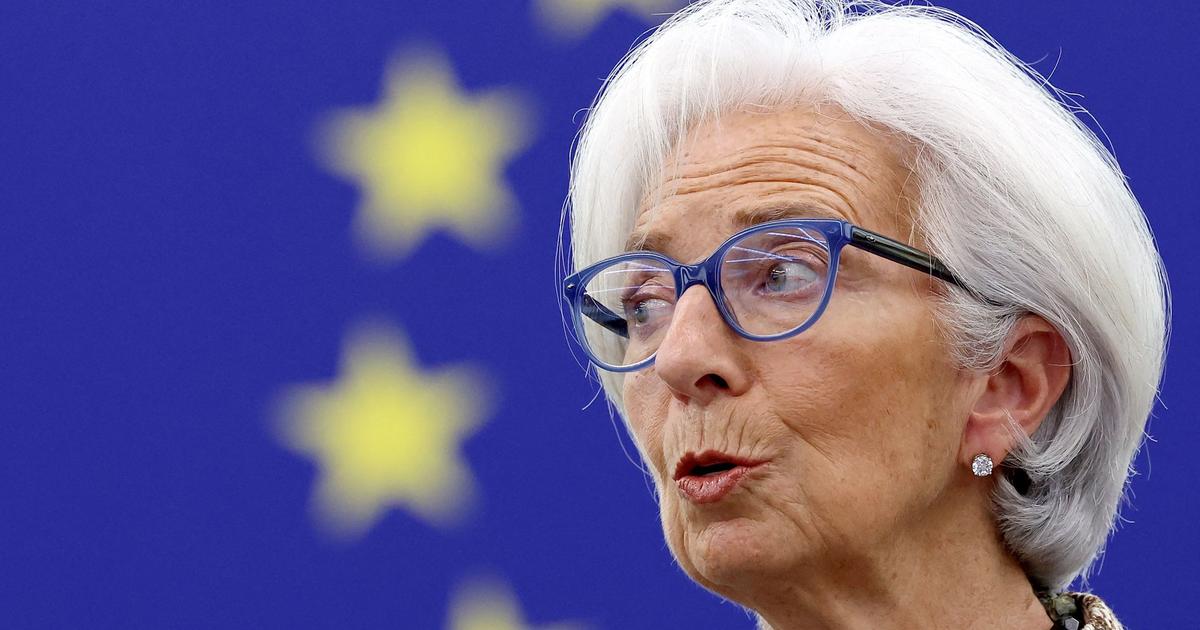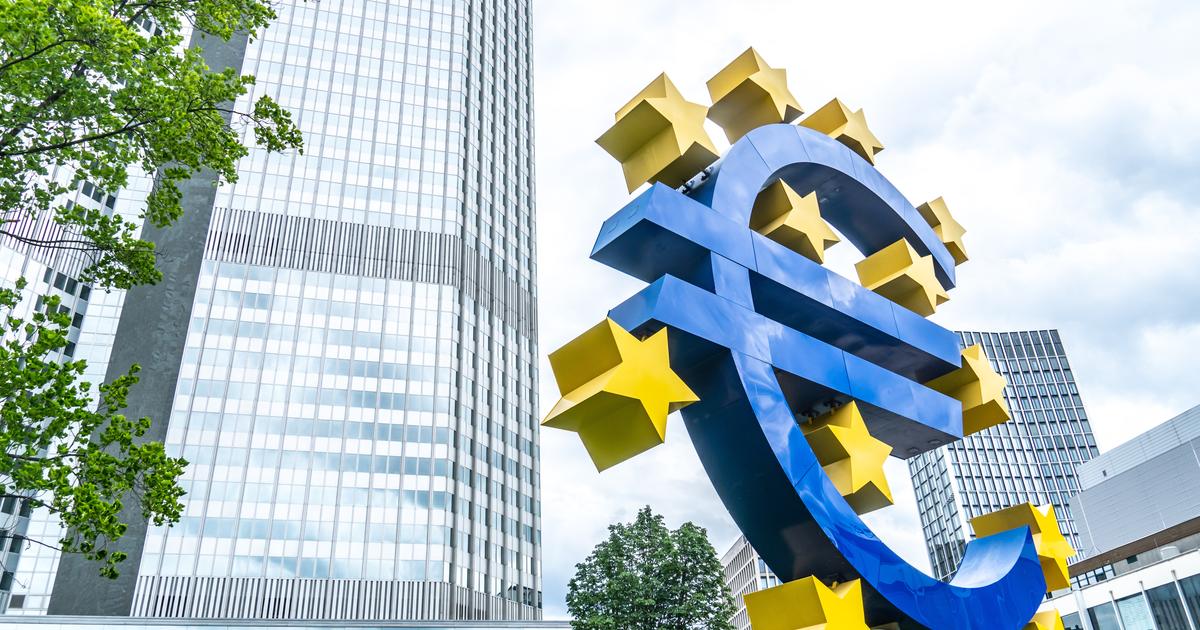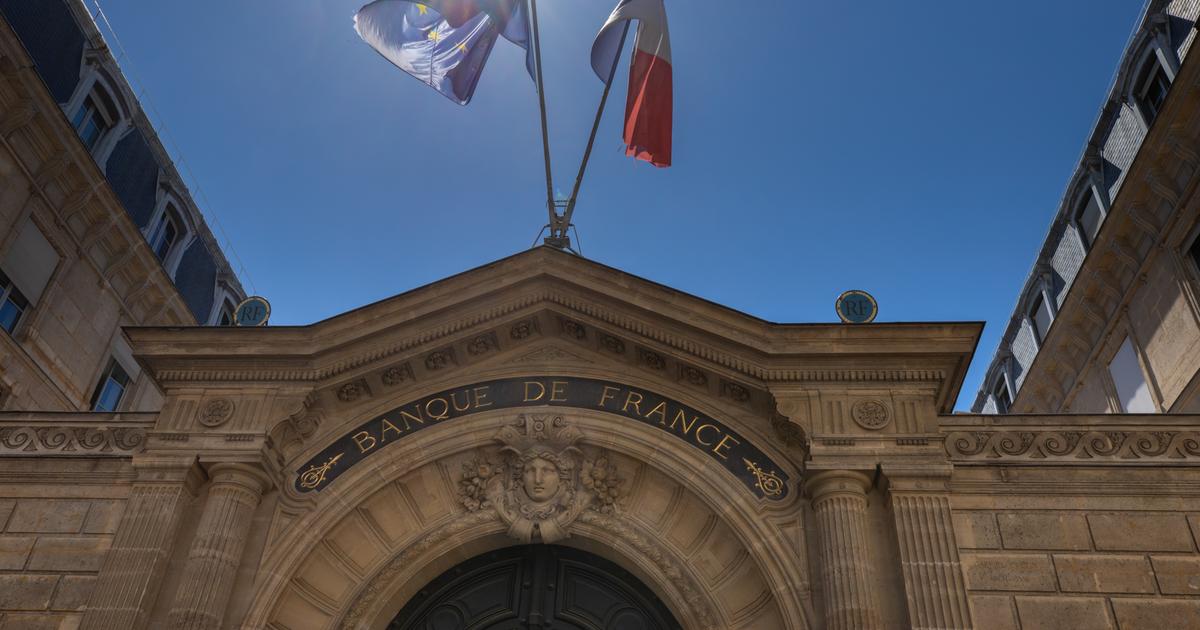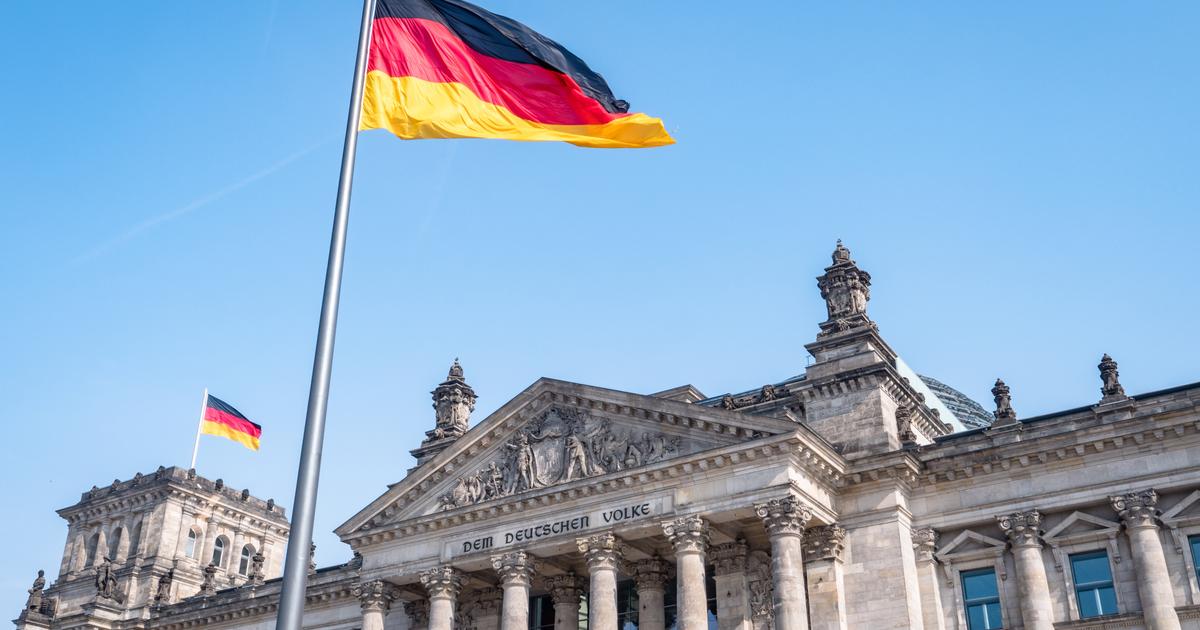Enlarge image
Empty shopping cart (symbol image): What lies ahead is inevitably fraught with uncertainty.
Photo: Joachim Küster / iStockphoto / Getty Images
Inflation is particularly troublesome when it comes unexpectedly.
Purchase and investment plans can easily turn out to be wrong in the event of surprising price increases.
Workers who have underestimated the rise in the cost of living see the purchasing power of their wages dwindling.
Inflation sucks.
Surprisingly severe inflation is particularly big crap.
We are experiencing it.
In Germany, the consumer price index rose by 5.2 percent compared to the same month last year, and by 5 percent in the euro zone as a whole (watch
out for new numbers on
Wednesday
and
Thursday ).
The US comparison value was recently even at 7 percent.
We are dealing with a global inflation trend that has even marginally affected chronically deflationary Japan (
the Tokyo central bank meets on
Tuesday ).
Not only rich economies are affected, but also developing and emerging countries, including Turkey, whose central banks
want to decide on the next steps to prevent the lira from falling and inflation galloping on
Thursday .
Hardly anyone has predicted the current price jumps.
Central banks, financial politicians, economic researchers, managers, speculators and ordinary citizens - they have all been pretty far off the mark in the recent past.
Quiet on the price front?
Are you kidding me? Are you serious when you say that
Still in autumn 2020 - that was only 15 months ago!
– the International Monetary Fund (IMF) expected an inflation rate of 1.1 percent for Germany in 2021 as a whole, and only 0.9 percent for the euro zone.
The IMF experts reckoned with 2.8 percent for the USA.
Today, in January 2022, we know that prices rose much faster last year.
In fact, US inflation will end up at just under 5 percent on average in 2021, in the euro zone and in Germany the rates will be just under 3 percent.
Above all, the strong increases in the second half of the year are responsible for the price shock.
Experts and financial market gamblers were no better with their forecasts and bets: surveys of professional forecasters show that experts were still assuming calm on the price front in autumn 2020.
Long-term inflation swaps – financial products with which one can bet on future price developments – signaled euro inflation rates of just over 1 percent at the time.
Surprisingly, laypersons in economics fared somewhat better.
In autumn 2020, private individuals who are regularly surveyed by the Deutsche Bundesbank expected inflation to average 2 percent over the year.
They were therefore closer to reality than the majority of experts with their complex models.
But the citizens also clearly underestimated the price dynamics.
The consequences of such mistakes in expectations can be painful: Anyone who has taken on a lot of debt in the expectation of permanently low inflation rates and interest rates may have to accept a follow-up loan on much less favorable terms.
Anyone who has invested in bonds or real estate must expect severe losses in value if interest rates rise.
Central banks whose forecasts and promises turn out to be grossly wrong suffer a loss of reputation.
Finance ministers and parliaments may find that some spending programs can no longer be financed under changed conditions - and thus cause frustration, disappointment and, in the worst case, political destabilization.
How long does "temporary" last?
We're not there yet.
Nonetheless, the magnitude of the errors in inflation forecasts is striking.
For many months, the central banks announced in unison that the price increases were "temporary" ("transitory"), triggered by short-term supply bottlenecks due to lockdown-related production restrictions and by a statistical effect resulting from the fact that today's prices are at the low point of the corona crisis in 2020 to be compared;
in Germany there was also a VAT reduction in the second half of 2020, which has long since been reversed.
But elevated inflation rates have proven persistent.
Instead of leveling off towards the end of 2021, they have continued to rise.
In the coming months, however, they should really decline, say many economists.
That is possible.
But is it likely?
A radically changed environment
Energy prices continue to rise, with the escalating conflict with Russia also playing a role.
Stricter climate protection measures will continue to drive up energy costs, and will continue to do so for years to come.
A »green inflation« threatens to become entrenched.
Political tensions in Asia and stricter corona rules are causing some global supply chains to break down.
In addition, workers are becoming scarce in many places.
The aging of societies is well advanced;
in many countries the potential of the labor force is already declining.
A development that is now being exacerbated by the fact that many employees have withdrawn from the labor market in the course of the pandemic.
All in all, the macroeconomic environment has changed quite radically.
In recent decades, favorable demographics and intense global competition have limited price and wage increases.
At best, climate protection was promoted half-heartedly.
A new phase is now beginning: the companies have price leeway and use it;
Workers have more bargaining power, so they should be able to push through hefty wage increases.
display
Henrik Mueller
Short-cut politics: How permanent outrage destroys our democracy
Publisher: Piper
Number of pages: 256
Publisher: Piper
Number of pages: 256
Buy for €22.00
price inquiry time
01/16/2022 04:09 p.m
No guarantee
Order from Amazon
Order from Thalia
Order from Weltbild
Product reviews are purely editorial and independent.
Via the so-called affiliate links above, we usually receive a commission from the retailer when you make a purchase.
More information here
The increase in the price of everyday life has long been a political issue.
In the USA, the central bank has already announced several interest rate hikes for the current year;
securities purchases are rapidly scaled back.
The governing Democrats face a fiasco in the mid-term parliamentary elections in the fall.
In Great Britain, the cost-of-living crisis is threatening the already battered, party-loving government of Prime Minister Boris Johnson.
Hungary's leader Viktor Orbán, who is standing for re-election in April, is trying to appease popular discontent with price controls on staple foods.
The unexpected surge in inflation could have a politically decisive impact on the presidential elections in France.
In short: a spring of dissatisfaction is imminent.
Actually, the surprises are limited
The errors in the inflation forecasts are all the more remarkable as much has been known since autumn 2020 at the latest that has actually happened since then. The corona virus and its spread dynamics were known. Effective vaccines were developed, produced and ordered. It was known that central banks and finance ministries - and for the first time the EU with its 750 billion Corona fund - were shooting at the top of their lungs against the economic crisis. US President Joe Biden's mega stimulus package was on the horizon. The lockdowns would loosen international supply chains and possibly cause procurement problems, which was also known for a long time.
The fact that inflation could become an issue after the Corona recession was discussed several times at this point two years ago.
But of course those weren't forecasts, but rather a scenario that was told, which resulted from the fact that the framework conditions changed.
What exactly this change would mean for economic development was not so easy to estimate.
Structural breaks, such as those triggered by the pandemic, make it difficult to make reasonably accurate predictions about the near future.
People tend to perpetuate the immediate past.
This applies to complex models of economists as well as to narrative scenarios with which ordinary people look at their everyday reality: we try to make sense of tomorrow by examining yesterday as precisely as possible.
But what lies ahead is inevitably fraught with uncertainty.
We may be able to see an outline of it, but not an exact contour.
This applies all the more to a constructed statistical variable such as the inflation rate, which the individual citizen cannot observe directly.
Going back to earlier episodes of inflation – such as the 1970s (internationally) or the early 1920s (Germany) – also leaves many questions unanswered.
Historical experience shows that weak state institutions and divided societies tend to devalue money.
But to what extent the credibility of the institutions is endangered today, what consequences this will have for future price dynamics - all of this can hardly be predicted, let alone seriously quantified.
The Germans remain skeptical
Can inflation forecasts be improved?
Economic researchers and central bankers are trying to do this.
You are in the process of developing new data sources and methodological approaches.
The Bank of England (BoE), for example, tries to rely not only on mathematical models but also on narrative approaches to economic development.
To this end, she sends emissaries around and has them collect narratives on economic and price developments from across the country;
the BoE people let themselves be told stories by company managers, i.e. by people who have a say in the future and price developments through their decisions.
A structural break like the one triggered by the Covid crisis can possibly be taken into account more quickly with these methods in the future.
Who knows.
Otherwise, the inflation strategists will continue to steer through the inflationary storm with a kind of autopilot.
Current survey data and financial market indicators show that longer-term inflation expectations are pretty much where the central banks want them to be: around two percent.
Everything is quiet?
Only the Germans remain skeptical.
According to Bundesbank surveys, the inflation expectations of German citizens have risen massively since last summer.
Most recently they were four percent – twice as high as the prognosis of the professionals.
The most important economic dates of the coming week
Expand areaMonday
Beijing -
Growth in the Far East
- China's statistical office announces Chinese economic growth in 2021.
Hanover –
wages up?
– The mining, chemical and energy industrial union (IG BCE) gives an outlook for the new year.
ExpandareaTuesday
Tokyo –
going full throttle?
– The Japanese central bank decides whether to continue its super-expansive monetary policy.
ExpandareaWednesday
Wiesbaden –
German Inflation 2021
– The Federal Statistical Office presents figures on the inflation rate in December and for 2021 as a whole.
Expand areaThursday
Luxembourg –
European inflation
– The EU statistical authority Eurostat publishes key figures on the development of consumer prices.
Ankara –
Currency crisis
– The Turkish central bank meets and decides on interest rates.
Despite rising inflation rates, President Erdoğan is banking on interest rate cuts and a fall in the lira.
Tokyo -
Export boom
- New data on Japanese foreign trade.
Recently, exports had risen sharply
Frankfurt –
In the engine room of monetary policy
– The ECB publishes the minutes of its last Council meeting.
The summary of the discussions could shed further light on how quickly the euro bank intends to taper its support measures.
ExpandareaFriday
Brussels -
Energy Taxation
- The deadline for EU governments to comment on the Commission's plans to classify types of electricity generation ("taxonomy") is ending.
The EU not only wants to promote renewable energy sources such as wind and sun, but also the construction of nuclear and gas power plants.
ExpandareaSaturday
Berlin –
Merz Freestyle
– The CDU meets for the digital party conference to elect a new party leadership.


/cloudfront-eu-central-1.images.arcpublishing.com/prisa/O3URHWIQOUAJHPGYUFW2ZWAF2I.jpg)






